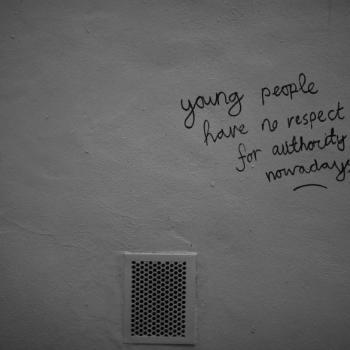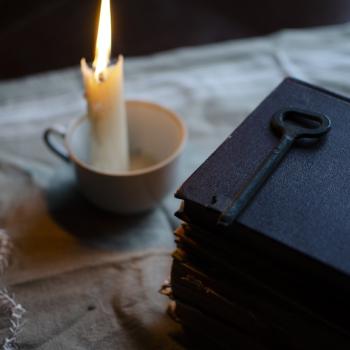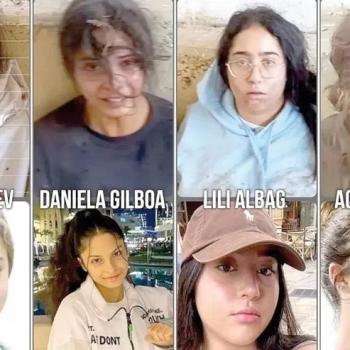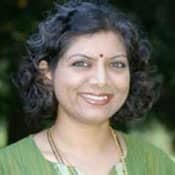As a human rights organization that advocates for Hindus in America, the Hindu American Foundation is also concerned with the rights of others around the world, particularly when they are impacted by American policy and actions that our nation takes. As Hindus, we are more likely to be aware of the unfair treatment to other Hindus around the world. And it is our dharma to take care of our Hindu brethren. A film tour with movie maker Rahul Rijji Nair and his documentary, The Human Boundaries, was an obvious fit for HAF's advocacy goals, and as an Executive Council member of HAF, I was fortunate to be able to organize an event in southeastern Michigan to highlight the suffering of Pakistani Hindu refugees in a camp on the other side of the world.
The Human Boundaries is a 35-minute documentary on the life of 151 Hindu refugees from Pakistan who entered India in September 2011 with a one-month tourist visa. Systematic violence, rampant discrimination, and widespread restrictions on religious freedom have led thousands of Pakistani Hindus to seek refuge in India in recent years, and the movie highlights the plight of one group who sought refuge in India. Sheltered in a camp on the outskirts of New Delhi, these refugees faced deportation once their visas expired.
The event in metro-Detroit, as it did in most of the various metropolitan regions where it was screened, had an audience mostly from the Indian-American community. In the audience were a few people from the broader community, like MI Roundtable's Director of Programs Steve Spreitzer, which gave me hope that we can work together to promote social justice both locally and internationally. The screening enabled people to hear directly from Rahul Nair, and to ask questions.
Nair, who draws inspiration from Art of Living founder Sri Sri Ravi Shankar, said the title refers to the "boundaries drawn across the human conscience." His narration of how he came to film the movie and what happened afterward was simple and moving: the film was shot in a highly restricted and sensitive environment inside the refugee camp; he and a few friends used minimal equipment over three days to get footage that would tell the story of this group of refugees. The resulting documentary traces the difficulties they had to face in Pakistan, life inside the camp, and fears arising from their status: the Indian government has failed to recognize the majority of them as refugees or grant them asylum. Some in the audience questioned why HAF has put the Indian government in a negative light, but Associate Director Jay Kansara explained how HAF has urged the Indian government to provide formal legal status to Pakistani Hindu refugees. I reiterated the goal of advocating for Pakistani Hindus who are seeking refuge in India: we are trying to bring awareness to the plight of refugees, so that policies and actions can be taken to remedy the untenable situation. It is an issue of social justice and human rights.
In fact, HAF commemorated World Refugee Day by announcing this national film tour of the Human Boundaries this summer. Drawing attention to the plight of Hindu refugees and displaced persons throughout the world, the Foundation urged the UN Commissioner for Refugees (UNHCR) to address the escalating crisis facing Pakistani Hindu refugees living in India and also requested UNHCR officials to oversee the protection and shelter needs of Balochi Hindus internally displaced within Pakistan by violent conflict and religious oppression.
World Refugee Day is a day to pay tribute to the more than 42 million people forcibly displaced as a result of violent conflict or persecution. UNHCR's theme and campaign for this year, "Refugees have no choice. You do," emphasized the powerlessness and vulnerability of refugee populations. Recently, HAF Director Samir Kalra highlighted the plight of Hindu refugees from Bangladesh, internally displaced Kashmiri Hindus, and stateless Hindus of Indian origin in Malaysia in an essay entitled "All Refugees are Created Equal."
Kalra is the Foundation's Senior Human Rights Fellow, and helps create the annual Foundation's Hindu Human Rights Report. The idea for the report was conceived of when organizations like Amnesty International and Human Rights Watch might have had a paragraph in their reports dedicated to issues in Kashmir, and things going on in other places such as Malaysia were virtually non-existent. Now, this annually-released report documents violations against Hindus in South Asia and the Diaspora. HAF sought to provide voice to those Hindus who were not being heard. The latest report covers violations against Hindus in seven countries—Bangladesh, Bhutan, Fiji, Malaysia, Pakistan, Sri Lanka, and Trinidad and Tobago—and the Indian State of Jammu and Kashmir, with coverage of both Afghanistan and Saudi Arabia as Hotspots of Trouble. The idea came from a sense of responsibility and social justice that the founders of HAF had, grounded in the Hindu principle of dharma—one translation of this Sanskrit word is justice.
As Hindus, we at the Foundation believe in our collective responsibility to provide protection to individuals who have limited personal power and resources to argue their case, and whose basic human rights are trampled upon daily. Much like the Jewish concept of tikkun olam, the call to "repair the world," or the biblical proverb "Speak up for those who cannot speak for themselves, for the rights of all who are destitute," Hindus are called to fulfill their dharma through the yoga of action—and advocacy.
12/2/2022 9:08:54 PM





